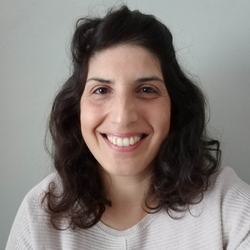Dr Golnar Kolahgar
Extracellular factors and adhesion proteins with regard to cell-fate decisions
Affiliation: Department of Physiology, Development and Neuroscience
Biography
After obtaining a degree in Biochemistry and a Master of Science at the University Paris 6 (France), I worked as a research assistant in Alfonso Martinez-Arias’ lab, where I started learning about developmental biology. During my PhD in Jean-Paul Vincent’s lab at the MRC National Institute of Medical Research (London), I studied how embryonic epithelial cells undergo apoptosis after they lose contact with their neighbours. Further interested in signal transduction, I joined Eugenia Piddini’s lab as a postdoctoral researcher at the WT/CRUK Gurdon Institute (Cambridge) to study how differences in cellular fitness affect cell-fate decisions in tissue homeostasis. In 2017, I started my group at PDN with a Sir Henry Dale Fellowship, jointly funded by the Royal Society and the Wellcome Trust. We explore the roles of extracellular factors and adhesion proteins with regard to cell-fate decisions in the Drosophila intestine.
Research
The intestinal epithelium constantly regenerates from stem cells, which adjust their behaviour to the changing physiological conditions the gut is exposed to. For example, stem cell proliferation rates can transiently increase to speed up regeneration after tissue loss or in response to the diet, before reverting to steady-state levels once correct tissue size is reached. This plasticity is essential for intestinal function, as lack of regeneration causes tissue atrophy whereas unrestricted stem cell proliferation promotes cancer.
The molecular mechanisms of gut maintenance and tissue differentiation resemble largely those used during development. For example, the same signalling pathways that control tissue growth during development control cell fate decisions in the adult or become misregulated in cancer.
Our aim is to identify the secreted and physical factors regulating gut plasticity. We focus on discovering extracellular molecules that instruct cells to proliferate in the gut and on investigating the crosstalk between the visceral mesoderm and the intestinal epithelium. We work with the intestine of the fruit fly Drosophila due to the ease with which it can be genetically manipulated and imaged with sophisticated microscopy, its rapid lifecycle and because it is cost-effective. Importantly, this organism shares more than 70% of its DNA with human disease genes, meaning that our basic research has the potential to uncover new insights into intestinal maintenance and degenerative diseases.


